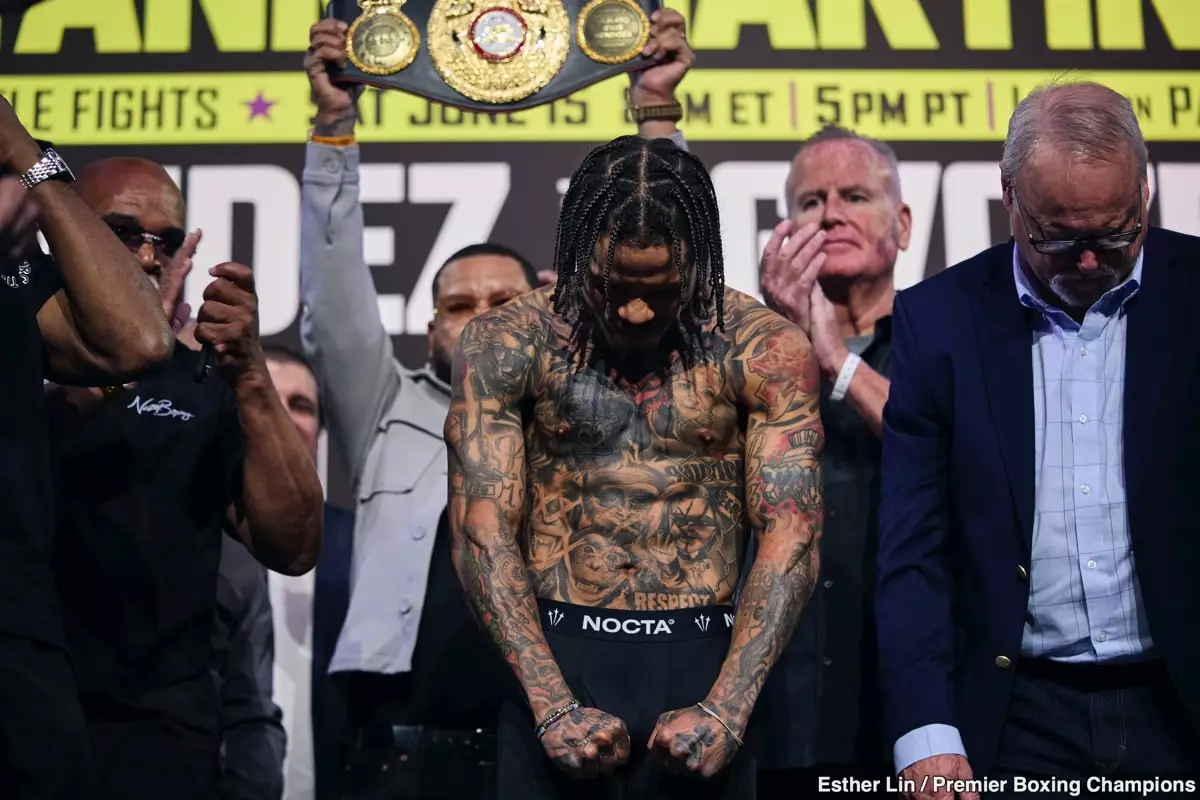Gervonta ‘Tank’ Davis, a prominent name in the world of boxing, continues to face substantial scrutiny regarding his choice of opponents, particularly for his upcoming title defense against Lamont Roach Jr. on December 14th in Houston. The backlash from fans has been palpable, with many criticizing the matchup as a classic example of ‘cherry-picking’—a term often used to describe the selection of less challenging opponents to secure victories. This perception raises questions about Davis’s ambition and willingness to embrace risk in the pursuit of greatness.
Fans have expressed concern that Davis’s consistent pairing with lesser-known fighters from the super featherweight division reflects a reluctance to pursue more formidable challenges. Critics point to his past opponents and draw comparisons with a roster of talented lightweights, such as Andy Cruz, Keyshawn Davis, and Raymond Muratalla, suggesting that these fighters would provide a much stiffer test than Roach, who comes into the matchup with a record of 25-1-1.
The Response of Team Davis
In defense of Davis, coach Kenny Ellis has staunchly advocated for Roach, emphasizing his pedigree as a seven-time national champion. However, this defense does not entirely shield Davis from criticism. While Ellis touts Roach’s capabilities, the fact remains that he has not secured a definitive record against elite competition. For instance, Roach has suffered a loss to Jamel Herring and narrowly edged out Hector Luis Garcia, a fighter handedly defeated by Davis just earlier this year.
The narrative constructed by Ellis about the sparring history between Davis and Roach—wherein Davis reportedly held the upper hand—does little to appease critics. While sparring sessions can offer insight, they rarely translate into the actual fight dynamics, where factors such as professional experience and mental fortitude come into play. Fans desire to see Davis challenge himself against the best, and the reluctance to engage with top-tier talent only feeds into the narrative that he is unwilling to take true risks.
The boxing community offers a rich pool of talent within the lightweight division, and the missed opportunities for Davis are glaring. The likes of Edwin De Los Santos and William Zepeda stand ready to take on the challenge that Davis seems hesitant to embrace. The criticism that Davis is, in essence, taking the easy route rather than confronting harder matchups leads to a lingering disappointment among his fanbase. It raises the question: what legacy is Davis truly aiming to build if he opts for easier challenges over those that can cement him as one of the greats?
Ellis contends that the decision to fight someone like Roach stems partly from other potential opponents pricing themselves out or choosing not to engage. However, many fans find this rationale lacking. The argument suggests a kind of complacency within Davis’s camp—an unwillingness to pursue the fight that boxing aficionados would find compelling. The perception that he is electing for a calculated victory rather than an opportunity for growth obscures his potential legacy as a fighter willing to step into the ring with the best.
The implications of this matchmaking approach extend beyond just a single fight. They arguably shape how Davis is perceived within the broader boxing landscape. Achieving greatness in professional boxing is rarely about avoiding risks; it often involves stepping into uncertain territory and prevailing against formidable adversaries. The success of legends like Muhammad Ali and Mike Tyson was built on their willingness to face off against the best in their eras.
As December 14th approaches, the boxing community will be watching closely. The hopes of fans rest not just on the outcome of the fight against Roach, but on whether Davis will eventually pivot toward a path that embraces challenge, risk, and the kind of eager ambition that defines great champions. Until then, the criticism will continue, with many left wondering when—if ever—Davis will truly embrace the mantle of a fighter willing to engage with the best of the best.

